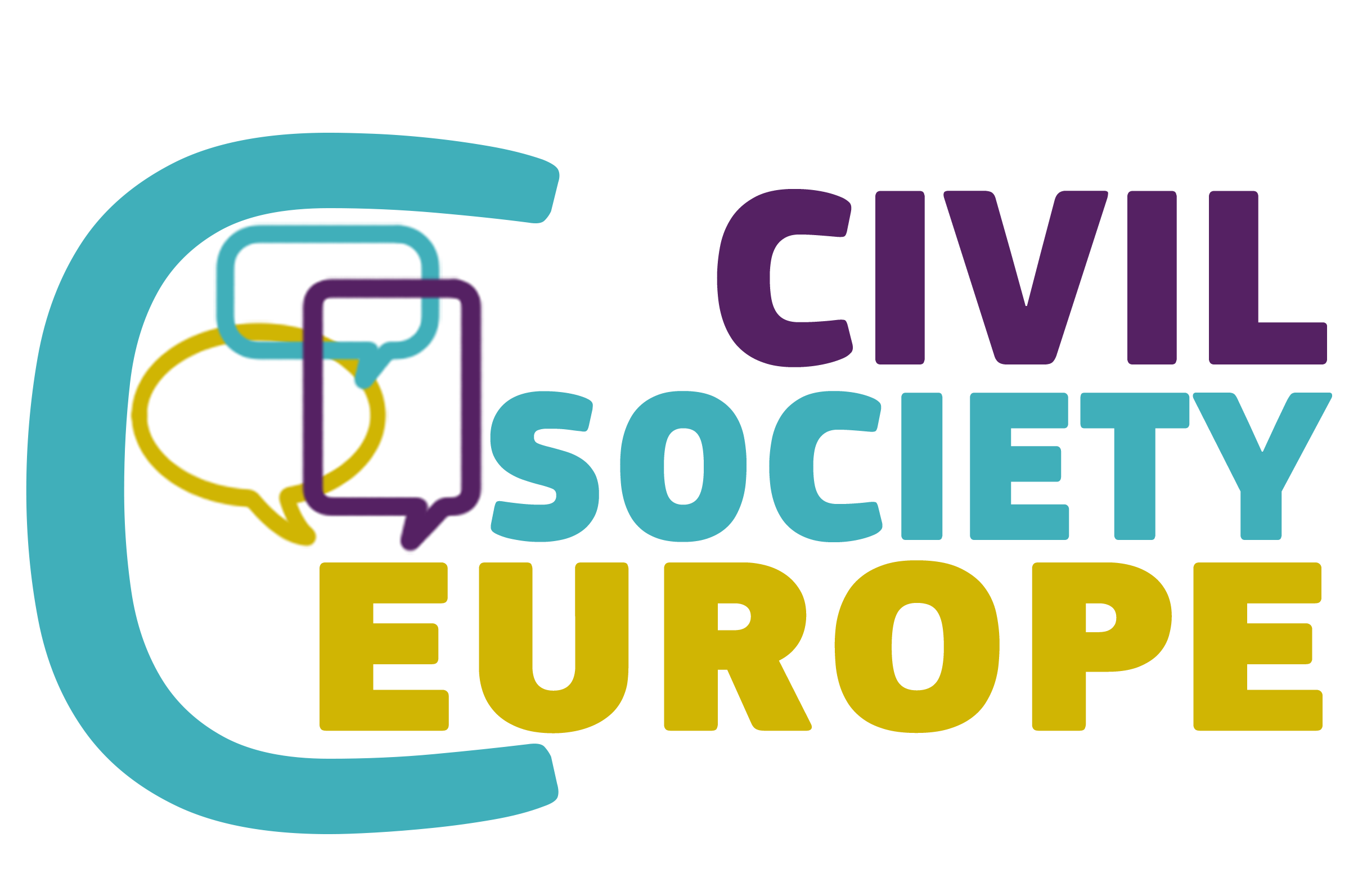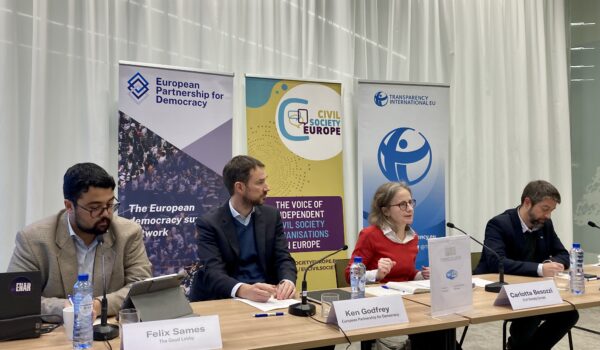Today the Commission will present a package for the Defence of Democracy at European Parliament. This package was very much awaited by civil society organizations as it was expected to “deepen the action under the European Democracy Action Plan to promote free and fair elections, to step up the fight against disinformation and to support media freedom and pluralism, including by developing civic space and citizen participation to bolster democratic resilience from within” as outlined in the European Commission work programme last year.
While we welcome some elements of the package, such as the recommendation on civil society and citizens participation in public policy making, as well as on the Recommendation on an inclusive and resilient electoral processes, we have to stress our concerns on the process with a lack of a truly structured dialogue with stakeholders including civil society following the open consultation. In particular the legislative proposal accompanying the package was due to be adopted in June with no impact assessment in breach of the better regulation. Despite a later fix on this, discussions on the recommendations and communication were extremely limited, which is concerning for a package on the defence of democracy. We hope that the recommendation on civic engagement and on the resilience of electoral processes, although addressed to Member States, will pave the way for a structured civil dialogue at EU level, and call on the European Parliament to strengthen this element in its follow-up work.
Civil society plays an essential role in vibrant, democratic societies. Civil society organisations are key actors in addressing different societal issues as well as defending rule of law, democracy and fundamental rights. Yet, while an enabling space for civil society is essential, experience across Europe shows how fragile that space can be. Deliberate, or inadvertent steps, can put civil society at risk and destroy the very essence of an essential democratic pillar.
In this context, we would express our concern about the European Commission’s proposal for a Directive establishing harmonized requirements in the internal market on transparency of interest representation on behalf of third countries which is foreseen to be presented on 12 December 2023 as part of the Defence of Democracy package. This letter follows a statement issued in May by 230 civil society organizations across Europe. Even though an impact assessment was finally done, our concerns have not been addressed in the legislative proposal.
We share the Commission’s concerns about malign interference and disinformation, including in the context of the upcoming elections to the European Parliament, especially because such interference targets checks and balances of the rule of law, which include civil society organisations and the media. However, tackling malign foreign interference in isolation will not be effective. Instead, this directive will have negative repercussions on Europe’s role in protecting civil society and democracy in the world.
The proposed legislation creates a register of entities who carry out interest representation services or activities on behalf of third countries to “influence public decision-making processes in the EU”.
We are concerned that the proposal may breach EU primary law, affecting both fundamental rights such as assembly, expression, personal data protection, privacy, and economic freedoms like capital and establishment. For instance, it could limit people and organisations ability to gather, express opinions, or engage in advocacy. Additionally, it imposes discriminatory capital restrictions on organizations carrying out services representation activities funded by third countries as compared to those being funded by EU countries, and introduces added costs and administrative burdens that could hinder establishment freedoms. In addition, the public access to the data contained in the register with limited exceptions, or limitations on access to funding, would constitute a serious interference with Articles 7, 8 and 12 of the Charter, as already established by ECJ case law (C-78/18 – Commission v Hungary; Joined Cases C-37/20, C-601/20).
By only capturing foreign funding through a public register and a special registry number to be displayed by organisations, the proposal could also lead to unintended consequences for civil society, such as refusal of entering into dialogue by authorities, stigmatisation and harassment, including of citizens that are members of civil society organisations.
In addition, the directive will undoubtedly undermine the EU’s external efforts to strengthen civil society in third countries, as it mirrors foreign agent laws that the EU has actively opposed elsewhere. The negative impacts of foreign funding legislation on civil society have been well-documented, including in countries like the US, and the UK, and Hungary. More recently, foreign agents laws have been proposed in candidate countries such as Georgia, Bosnia and Herzegovina, as well as in other countries like Kyrgyzstan and Kazakhstan. The safeguards contained in the proposal do not protect civil society from these adverse consequences and will therefore prove to be ineffective.
We have proposed instead replacing the current Directive with an EU Interest Representatives Act which would effectively and comprehensively address third-country malign interference. This Act would cover all interest service representatives in the Union, addressing domestic and foreign funding, aiming to enhance transparency, accountability, and integrity, by establishing a horizontal and fair framework.
Such a revised proposal should be built as a result of a thorough civil dialogue process, taking into account the different nature of interest representation as compared to civil dialogue.
We will continue to work further on the package and a revised legislative proposal that will strengthen democracy from within.
Please also read our joint press hand out with the European Partnership for Democracy, Transparency International and the Good Lobby.


